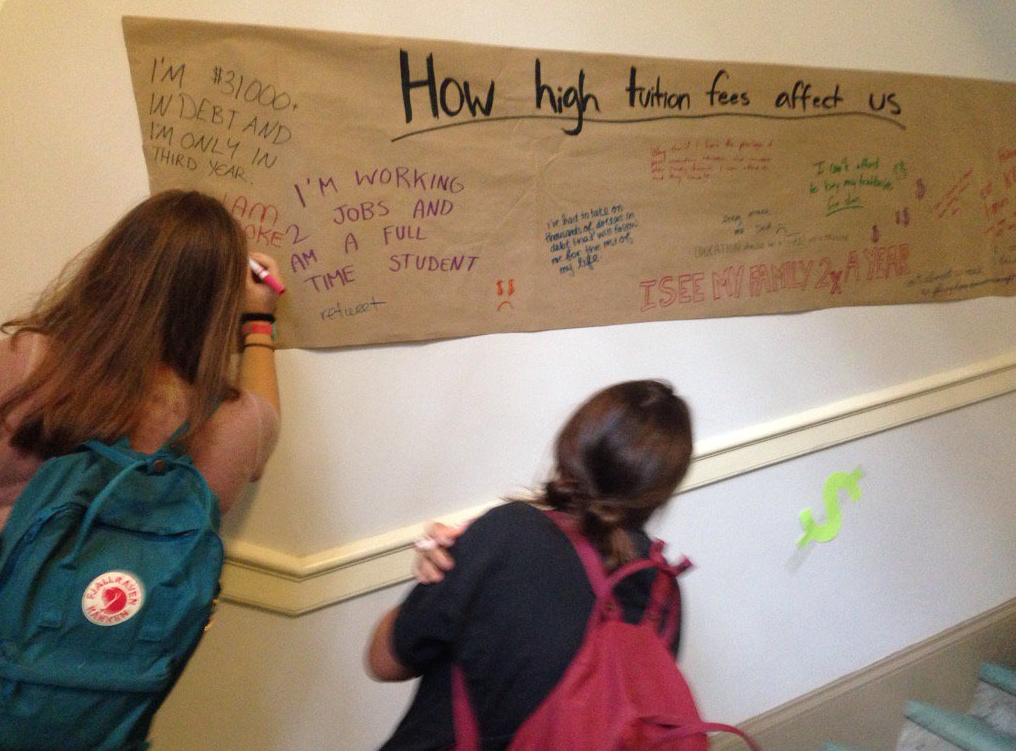Rising tuition fees were the target of a protest by University of King’s College students on Monday.

Students scrawled messages across campus walls about how the high cost of a King’s education is affecting their lives.
READ MORE: Nova Scotia tuition hikes are double national average this year: CFS-NS
“I can’t do summer classes because I have to work full time,” read one post.
“I’m working two jobs and am a full-time student,” read another.
The King’s Student Union says students at the school pay some of the highest tuition costs in the country — on average, it’s more than $7,000 per year.
“Some of the things that students are writing are that they can’t afford the necessities because their fees are so high. So things like, students are working more and more part-time jobs in order to pay for their education while their also studying,” said King’s Student Union vice president Gina Grattan.
“Things like campus food banks are seeing an increase of students going to their food banks because they have to choose between things like food or text books.”
Earlier in September, Statistics Canada numbers revealed that students studying in Nova Scotia pay more than the national average for tuition. They also showed that tuition in the province increased at a rate that’s more than double the national average.

Get daily National news
“These fee hikes are slamming shut the doors of higher education for a generation of learners,” Canadian Federation of Students-Nova Scotia chairperson Charlotte Kiddell said at the time.
The King’s Student Union is calling for the school’s administration to pressure the government for increased funding, so tuition costs won’t continue to rise.
READ MORE: University tuition fees in Canada rise 40 per cent in a decade
In the coming weeks, the board of governors at the university will vote on whether tuition should be increased more — if they do decide to raise fees, King’s students could be paying $1,000 more starting in 2017.
In the 2015 provincial budget, the Liberal government announced it would temporarily lift the three per cent tuition increase cap, allowing universities in the province to increase prices by any amount they saw fit.








Comments